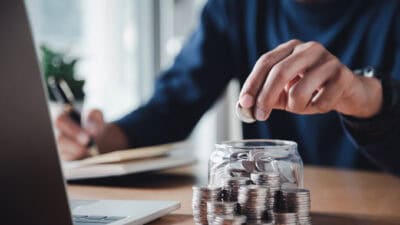One unfortunate thing this ASX market crash has likely prompted attention to amongst many people is debt. And specifically how much of it we all might have.
Economic turmoil and uncertain job security are both awful but inevitable consequences of this coronavirus-induced lockdown we are all going through.
And a by-product of these forces is a sharp focus on indebtedness. See, as many ASX companies are also discovering, servicing debt never feels like a burden until cash flow dries up. Then all of a sudden, its weight goes from manageable to crushing for many people.
Although we all like to imagine ourselves and our financial situation as 'ready for what's next', this black swan event caught everyone totally off guard. Who could have imagined an unprecedented economic shut down just three months ago?
According to an RMIT report commissioned for ASIC, we aren't exactly well prepared for this situation either as a country. The report cites the fact that in 2019, our average level of savings fell from 3% to 2.3% in the first six months of last year (the lowest in eleven years).
This happened concurrently with our national household debt to income ratio climbing to 191% in June 2019. At the start of 2019, it was at 187% – a level the report describes as "extremely elevated" and "one of the highest in the world".
Put simply, this level of debt means we are vulnerable to downturns in the economy. On average, most households now have almost twice as much debt as what the entire household brings in in income each year. And if one or both streams of income are disrupted as a result of the coronavirus shutdowns? Well, it's a very tricky position to be in.
What to do if debt is getting you down
If you're in this unfortunate position, I think the best thing to do is figure out a plan of attack. Simply ignoring the problem isn't going to make it go away. You might have to cut back on some spending, work on securing an additional source of income (not easy right now, I know), or knock up a budget. Remember, every dollar you knock off a 5% principle-and-interest loan is really an investment with a 5% return.
And if debt is really getting you down, there are plenty of avenues to seek assistance. The government has released several assistance packages to help those in financial need during this difficult time. And that's on top of existing financial counselling services that are already provided on multiple government levels.
Debt can rob you of many things, including certainty and a good night's sleep, so get on top of it before it gets on top of you!








